When Lord Byron coined the phrase “truth is stranger than fiction,” he was likely thinking of scenarios similar to those recounted in the histories and biographies included in this roundup list. From spies to chefs, prisoners to activists and caregivers, these books tell the stories of a remarkable bunch of people living in extraordinary times and coping as best they could.
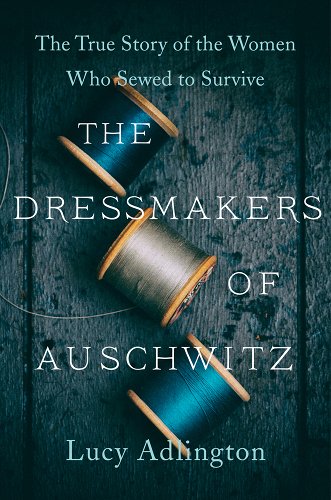
The Dressmakers of Auschwitz: The True Story of the Women Who Sewed to Survive
by Lucy Adlington
Harper Paperbacks, 400 pages, $17.99
In a truly remarkable story of grit and survival against the odds, Lucy Adlington’s The Dressmakers of Auschwitz relates the experiences of a group of young Jewish women who were imprisoned at the Auschwitz-Birkenau concentration camp. The conditions at the camp were horrendous and the likelihood of long-term survival for inmates was very low, but the twenty-five women received an extremely unlikely lifeline when Hedwig Höss, the wife of camp commandant Rudolf Höss, decided to open the Upper Tailoring Studio. Odd as it sounds, Auschwitz-Birkenau was home to a number of mundane-sounding enterprises that certain inmates were forced to work for, and Höss’ studio was a dressmaking workshop patronized by the wives of SS officers and camp guards. As the war had, unsurprisingly, decimated the fashion industry in Berlin, these women needed to procure the finery required for Nazi functions from somewhere, and the studio provided an opportunity for inmates with good sewing skills to escape the gas chambers, at least for a while. Using a wealth of historical records as well as interviews with survivors, Adlington elucidates the astonishing experiences of the twenty-five dressmakers.
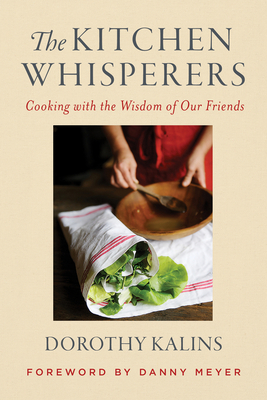
The Kitchen Whisperers: Cooking with the Wisdom of Our Friends
by Dorothy Kalins
William Morrow & Company, 304 pages, $26.99
The Kitchen Whisperers is a very personal account by Dorothy Kalins, founding editor of Savuer magazine and contributor to many successful cookbooks, of the extensive culinary wisdom she has collected over a lifetime of cooking, eating, and discussing food. From Kalins’ perspective, the most important cooking lessons are not those received from books, television, or the internet; rather, they are the tips, tricks, and snippets picked up by watching real cooks, whether seasoned professionals or enthusiastic amateurs, at work in their own kitchens. Whether deliberately or otherwise, it is these people who have the greatest impact on the dissemination of cookery knowledge. Of course, Kalins’ lengthy career in the culinary world means that many of her inspirations and mentors are internationally renowned chefs such as Marcella Hazan and Michael Anthony, although she also reminisces about the lessons she has learned from friends, relatives, and fellow home cooks. Included among Kalins’ interesting stories and recollections are recipes ranging from her mother’s meatloaf to David Tanis’ Swiss chard gratin, which are sure to inspire readers to attempt to cultivate some culinary experience of their own.
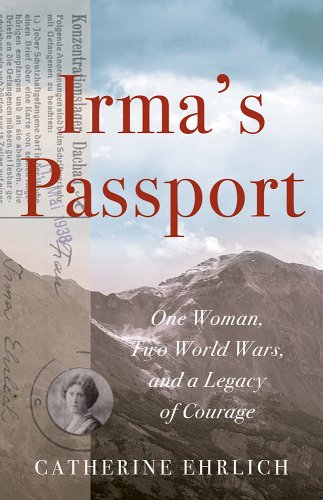
Irma’s Passport: One Woman, Two World Wars, and a Legacy of Courage
by Catherine Ehrlich
She Writes Press, 248 pages, $16.95
Catherine Ehrlich relates the tale of Irma’s Passport from two perspectives, her own and that of her grandmother Irma. Having been born in a picturesque village in Bohemia, Irma moved to Prague to study languages just prior to the outbreak of World War One. In Prague, she mixed with members of Europe’s intelligentsia, including Franz Kafka and Albert Einstein, although the war resulted in the death of her first husband and prompted her to move to Vienna. There, Irma’s path in life changed somewhat when she married Jakob Ehrlich, an advocate for Vienna’s Jewish community. With the outbreak of World War Two, Irma lost her second husband, but she and her son were able to flee to London following surprising intervention by Adolf Eichmann. Once in London, Irma again found herself mixing with high society, although this time round she had discovered her voice as an activist and worked tirelessly to help others escape from Nazi Europe. Her campaigning eventually took her to New York, where she settled and continued her work with refugees. Using the detailed journals kept by Irma as well as recollections from her later life, Ehrlich is able to tell her grandmother’s extraordinary story in her own words, and she also muses on the impact that her grandparents’ experiences have had on her own life.
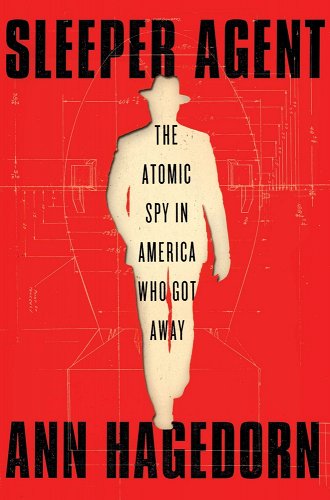
Sleeper Agent: The Atomic Spy in America Who Got Away
by Ann Hagedorn
Simon & Schuster, 272 pages, $28.00
A keen baseball player who was also a good student and popular with his contemporaries, George Oval appeared to be an archetypal all-American boy; however, in reality, Koval was the Soviet Union’s most successful sleeper agent. Born in Iowa in 1932 to Russian Jewish parents who had emigrated to the USA to escape anti-Semitism, Koval returned to the Soviet Union with his family due to their desire to live in accordance with their socialist ideals. While there, he was recruited as a spy and persuaded to return to the USA to continue his education and secure employment that would allow him access to confidential information. As a gifted science student, Koval was able to enroll at Columbia University, where he studied alongside scientists who would eventually work on the Manhattan Project. After being drafted, Koval’s science background meant that he was posted to a facility that produced uranium and plutonium. While there, and during subsequent postings, he had access to highly secret information concerning the atomic bomb project, which he fed back to Moscow. The information revealed by Koval proved instrumental in the development of the Soviets’ own atomic bomb, but quite remarkably, he was able to get away scot-free after the war. Sleeper Agent by Ann Hagedorn is a gripping account of Cold War espionage and the way in which a single individual changed the course of history.
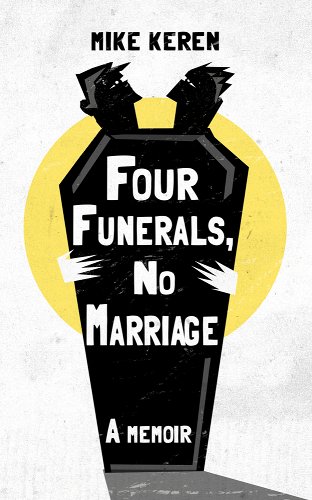
Four Funerals, No Marriage: A Memoir
by Mike Keren
Woodhall Press, 266 pages, $19.95
Mike Keren’s Four Funerals, No Marriage is a highly emotive memoir chronicling his experiences of caring for ill and dying relatives while also attempting to navigate an increasingly confusing and homophobic world. Keren had a difficult relationship with his parents, who had chosen to move North Carolina to spend their retirement hundreds of miles away from their New Jersey-based children. However, after deciding that they didn’t like North Carolina much after all, his parents returned, only for his father to be hospitalized after having a stroke while on a house-hunting trip and his mother to do likewise soon afterward after experiencing another in a series of heart attacks. While this was going on, Keren’s partner’s mother was recuperating after having a hysterectomy and attempting to cope with the chemotherapy she required to treat her ovarian cancer. Hugely dissatisfied with what he perceived as the uncaring nature of the healthcare system––a system he had previously abandoned after deciding to quit his career as a clinical psychologist––Keren opted to take on the caregiver role for both his parents and his in-laws. What followed for Keren was a heartbreaking yet darkly humorous experience of caring for others while simultaneously trying to find a way to care for and heal himself.


Recent Comments